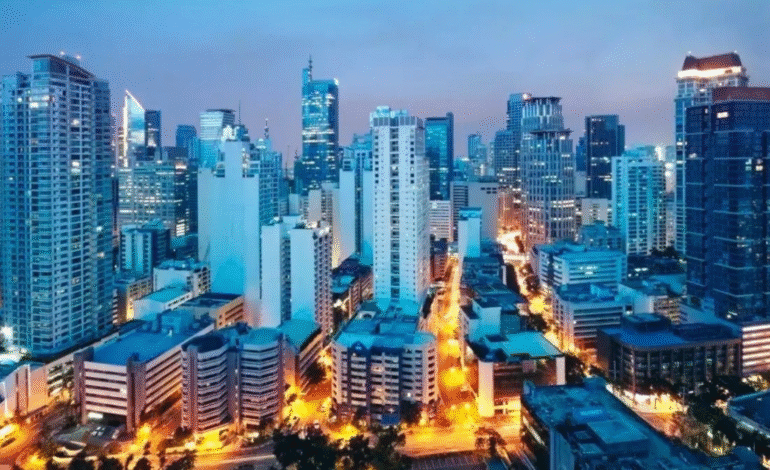Philippines Extends Land Lease Terms to 99 Years for Investors

The Philippines has approved a new law that makes it easier for foreign investors to lease land in the country. Signed by President Ferdinand Marcos Jr., the law allows foreigners to lease land for up to 99 years.
This is a major change from the old law, which only allowed 50 years, plus a one-time renewal of 25 years. By offering longer contracts, the Philippines hopes to attract more investors into real estate, tourism, agriculture, and industrial projects.
A Big Move for Business Growth
Foreigners cannot directly own land in the Philippines. But with this new law, they can lease it for almost a lifetime. This move gives investors more confidence to build long-term projects such as hotels, factories, and farms.
The change comes at a critical time. Foreign direct investments (FDI) in the Philippines fell by almost 27% in early 2025. The government hopes the new land lease policy will boost confidence and bring fresh capital into the country.
Why This Law Matters
Allowing 99-year leases is more than just a small policy change. It directly affects how investors plan their projects.
Key Benefits for Investors
- Longer time frame – Companies can plan big projects without worrying about lease expiry.
- Better returns – Hotels, resorts, and factories take years to pay back investments. A 99-year lease gives enough time.
- More security – Investors feel safer when they have long-term access to land.
- Competitive edge – The Philippines can now compete with neighbors offering similar or better lease terms.
This law gives companies the chance to recover costs, expand operations, and reinvest in the local economy.
How the Philippines Competes in Southeast Asia
Southeast Asia is a hotspot for foreign investors. Countries like Vietnam, Malaysia, and Thailand already attract strong FDI because of better infrastructure and business-friendly rules.
The Philippines often lagged behind because of shorter lease terms and red tape. But this new law improves its chances.
Real estate expert David Leechiu explained that the law could “open up a massive amount of investment capital.” He added that long-term leases would support projects like resorts and hotels that fuel tourism.
With this change, the Philippines is signaling it wants to catch up and compete for regional investments.
Which Sectors Will Benefit the Most
Tourism and Hospitality
The Philippines is famous for its beaches and islands. But many resorts and hotels require huge investments. Developers often avoided the market because land rules made it risky.
Now, with 99-year leases, big hotel brands and resort investors can enter with confidence. This can lead to more world-class tourism projects and job opportunities.
Agriculture and Food Security
Agriculture is another sector that stands to gain. Investors in farming, food processing, and exports will benefit from longer land access. This could improve food security and make the Philippines more competitive in global agriculture markets.
Manufacturing and Industrial Estates
Industrial estates and special economic zones also require large land areas. Foreign manufacturers setting up factories and warehouses can now secure land for the long term. This makes the Philippines more attractive for industries like electronics, renewable energy, and automotive parts.
Mining and Natural Resources
Alongside the lease law, President Marcos also signed a new mining tax law. It introduces a profit-based system for large operations. This is expected to attract responsible mining investments, especially since the Philippines has rich resources such as gold, copper, and nickel.
Why UAE and Middle East Investors Should Look at the Philippines
This reform is also good news for investors from the UAE and the Middle East.
The Gulf region has strong ties with the Philippines. Millions of Filipinos live and work in the UAE, creating close economic and cultural links. With the new lease law, UAE-based investors can now look at tourism, agriculture, and real estate projects in the Philippines.
Middle Eastern sovereign wealth funds and private companies have been diversifying into Asia. The Philippines, with its long-term leases, young workforce, and growing market, is now a stronger option.
Safeguards in the Law
The law also gives the president of the Philippines power to shorten lease periods in special cases. This applies to industries related to national security or critical infrastructure.
This safeguard ensures the government can still protect its strategic interests while encouraging foreign capital.
What This Means for the Economy
The timing of this reform is important. Global companies are diversifying their supply chains and looking beyond China. Southeast Asia is a top choice, and the Philippines wants a bigger slice of that investment.
By offering nearly century-long leases, the government is sending a strong message that it is ready to host long-term projects. The reform could lead to more jobs, higher exports, stronger tourism, and better infrastructure.
Challenges remain, such as improving roads, ports, and power supply. But experts believe this law could be the turning point that builds stronger investor trust.
A Bold Step Toward Investment Growth
The 99-year lease law is a game-changer. It shows that the Philippines is serious about competing for foreign capital in Southeast Asia.
For global investors—and especially those from the UAE and Middle East—this is an opportunity to explore one of Asia’s most promising markets.
By opening its doors wider, the Philippines is moving closer to becoming a true investment hub in the region.







